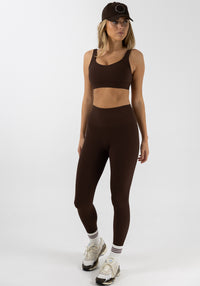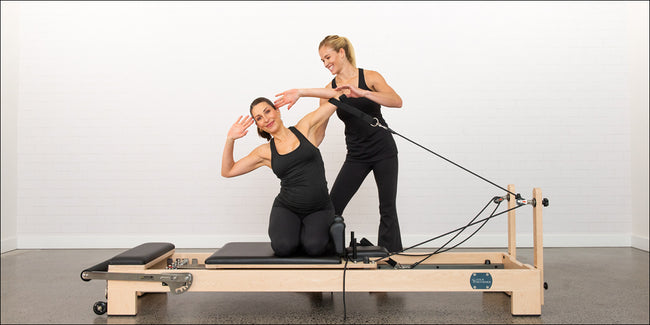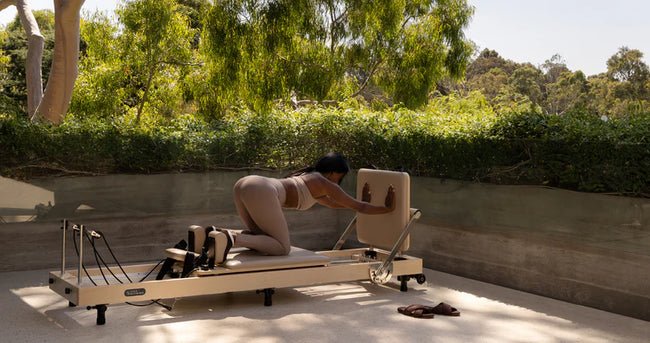Food matters when it comes to movement, but it doesn’t need to be complicated!
Here are 5 tips (backed by research) and some common misconceptions from YR's resident Nutritionist, Ashlee, to keep you fueled, energised, and help you get the most out of your Pilates sessions.
1. Carbs for Energy
Eating low or no carb can really impact on your energy and overall workout results. Research shows that eating enough good quality carbs supports endurance, strength and recovery, because carbohydrates are our bodies preferred energy source.
Myth: You need to avoid carbs to lose weight.
Debunked: Carbs are essential for our body to function, especially when it comes to exercise output.
Quick win... add good quality carbs before or after a workout to keep you satisfied and fueled for your movement. Consider wholegrain bread, rice, oats, or fruit.
2. Protein for Muscle Growth & Recovery
Getting enough protein is essential to help build and repair your muscles, especially if you’re adding more springs and tension in your Reformer workouts!
Myth: More protein is always better.
Debunked: Your body only requires a certain amount of protein (varies from person to person), anything over that has little extra benefit. For most people 25-30g is enough each meal.
Quick win... add some Greek yogurt, chicken or tuna with your meals and snacks. Aim for a palm-sized amount of protein with each meal.
3. Hydrate, Hydrate, Hydrate
Hydration is key for staying focused, energised, and performing your best. A good target is 2-3 litres of water each day… plus more if you have had a sweaty workout!
Myth: Water is enough on its own.
Debunked: When you sweat, your body loses minerals too, so you may need to replace these by incorporating electrolytes.
Quick win... keep a water bottle with you for easy, consistent sipping. Replenish electrolytes by adding a pinch of salt to your water!
4. Timing Meals for Energy
You don’t need fancy pre-workouts or strict meal timing rules. Just having a small snack about 30-90 min before your session can top up your energy stores to help you push a little harder during your workout.
Myth: You will lose your gains if you don’t eat straight after a workout.
Debunked: As long as you are eating within 1-2 hours post your workout to refuel your body and energy stores, you’re doing just fine. No need to overcomplicate!
Quick win... a few great workout snacks include: a banana with peanut butter; avocado on a slice of toast; or some yoghurt and berries.
5. Eat the Rainbow
Add as many colours to your meals as possible to make sure you support your body’s immune system, recovery and overall health. The more variety in colour the more vitamins, minerals and antioxidants you’re getting!
Myth: Frozen or canned foods don’t count.
Debunked: Frozen or canned fruits and vegetables can be just as nutritious or sometimes even more, because they are picked at their peak and preserved quickly! Just try to avoid any added sugars or preservatives that can sometimes be found in canned products.
Quick win... add fruit and vegetables to every meal and snack!
If this all feels new to you, don’t overwhelm yourself… you can start by just adding one or two of our quick wins to your day and see how your feel, move, and recover both on and off the Reformer!
Written by: Ashlee, YR Nutritionist & Pilates Instructor
References:
Academy of Nutrition & Dietetics, Dietitians of Canada, ACSM Position Stand:
https://www.sciencedirect.com/science/article/pii/S221226721501802X
Carbohydrates for training and competition:
https://www.tandfonline.com/doi/full/10.1080/02640414.2011.585473
protein & strength/muscle gains:
https://bjsm.bmj.com/content/52/6/376
Protein timing and distribution:
https://academic.oup.com/biomedgerontology/article/70/1/57/2947642
Exercise and hydration Replacement:
https://europepmc.org/article/MED/17277604
Hydration strategies for athletes:
https://journals.humankinetics.com/view/journals/ijsnem/18/5/article-p457.xml
protein timing vs. total intake:
https://jissn.biomedcentral.com/articles/10.1186/1550-2783-10-53
Nutrient timing:
https://jissn.biomedcentral.com/articles/10.1186/s12970-017-0189-4
Health benefits of fruits & vegetables:
https://academic.oup.com/advances/article/3/4/506/4591653
Increased fruit & veg intake
https://www.nature.com/articles/1002236

















